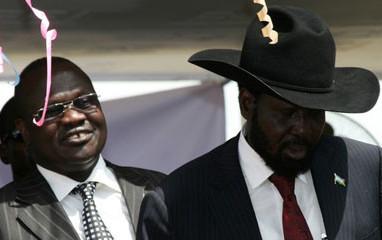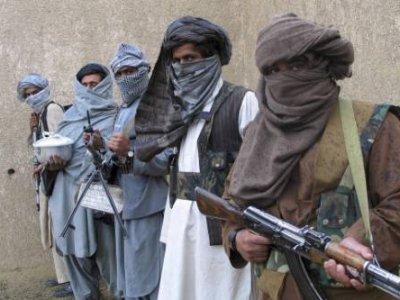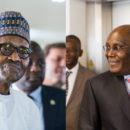International Criminal Court in Africa: “alea jacta est”
African countries are critical actors for the International Criminal Court (ICC). While it is clear that Africa forms the largest bloc of ICC member states, and that this year’s review conference of the Rome Statute has taken place in Uganda, other facts are often overlooked. For instance, it was the Democratic Republic of Congo’s (DRC) 60th ratification of the Rome Statute that triggered the Statute’s entry into force ¾and made the human rights community applauds the birth of something impossible to envision fifty years earlier. Coincidentally, the DRC is also the country in which the Office of the Prosecutor and the Court put an end to what was beginning to look like the international community’s reluctance to act, even while possessing an unprecedented mandate to investigate and prosecute persons accused of being responsible for abhorrent international crimes. All four of the occupants of the ICC’s Scheveningen detention centre are Congolese: Thomas Lubanga, Mathieu Ngudjolo Chui, Germain Katanga and Jean Pierre Bemba Gombo. The first cases to be heard at the ICC focus on war crimes and crimes against humanity committed in the DRC and the Central African Republic (CAR). Therefore, it is not an overstatement to say that the construction of international criminal justice has crossed the Rubicon in Africa: alea jacta est! This paper provides an overview of the relationship of the ICC to Africa, and suggests the possible innovative directions the relationship could take.
The challenges the ICC is facing in Africa are manifold. First, the operations of the ICC are anchored in ongoing conflicts. Four out of five African situations that have been brought before the Court are engulfed in active insurrections. The DRC has continuously experienced war and desolation since 1996, including a sustained pattern of sexual violence. Uganda’s battle with Joseph Kony’s Lord’s Resistance Army (LRA) was already affecting Sudan and has spilled over into north-western DRC and CAR. The CAR is still in a “no peace no war” situation, with fresh hostilities reported between government forces and the Popular Army for the Restoration of the Republic and Democracy in the north, while also reaping the bitter fruit of the LRA’s violent tactics. And Sudan’s Darfur region is not yet at peace.
Second, such contexts of ongoing conflict complicate the ICC Prosecutor’s work. On the one hand he possesses an irrevocable mandate to carry on with the indictments. On the other, he has to juggle the severe political and social consequences that the exercise of his mandate may cause to vulnerable civilians bearing the brunt of hostilities. Potential consequences may include increased instability and violence. Despite the risks, whether hypothetical or real, the Prosecutor finds himself in situations where national politics influence his “imperium“.
Here, depending on the circumstances, the Prosecutor finds himself subjected to the provisions of Articles 16 and 53 of the Rome Statute. Under Article 16, the United Nations Security Council may seek a one year renewable deferral of investigations, whereas under Article 53, the Prosecutor may assess if an investigation would serve the interests of justice or not. On the basis of Article 16, the situation in Sudan sparked a controversy regarding the Security Council’s role in seeking deferral of the al-Bashir indictment. But that Sudan is not a state party to the Rome Statute, combined with the fact that al-Bashir is a sitting head of state, contributed to heightened tensions between the African Union (AU) and the ICC. In a rumble of political considerations, the AU called upon its membership to suspend its cooperation with the ICC because it argued that al-Bashir’s indictment would jeopardise peace. Meanwhile, authorities of the DRC are brandishing the possibility of renewed instability in the eastern part of the country if the ICC’s arrest warrant against General Bosco Ntanganda is ever enforced.
Third, the ICC’s work in Africa is at the centre of the peace versus justice controversy. Whether or not ICC prosecutions can fuel or re-ignite a conflict is debatable. Supporters of prosecutions argue that the destabilising effects of the ICC are overstated, and cite the fact that the arrest of Jean Pierre Bemba, former vice-president of the DRC and narrowly defeated candidate in its 2006 presidential elections, did not result in the significant instability that many expected. In Ituri province, followers of Lubanga, Ngudjolo and Katanga did not use the arrest and transfer of their leaders to The Hague as a new casus belli. The fact that the trio was already in custody of the Congolese government when the ICC arrest warrants were issued could be read as an inhibiting factor. However, those sceptical about the positive effects of prosecutions point out that any deterrent effect resulting from the removal of these warlords from their factions is mostly hypothetical rather than real. A new insurgency movement emerged thereafter: the continuation of the Front des Résistants Patriotes de l’Ituri and the creation of a coalition of rebel movements called the Front Populaire pour la Justice au Congo. In Uganda, together with the changing situation in South Sudan, the indictment of top leaders of the LRA softened the movement’s stances, allowing participation in the Juba negotiations, before hardening once again. Since its refusal to sign the final peace deal brokered in Juba in 2008, the LRA has conducted a terror campaign against populations of north-eastern DRC. The massacre in Doruma in December 2008 was the climax of the LRA’s revived military activities. This debate about the consequences of justice continues.
The final challenge which is rarely discussed is that none of the states referring cases to the ICC have enacted complementarity provisions in their national legislation, in order to demonstrate real commitment to the ICC. In fact only four African countries, Senegal, South Africa, Mali and Kenya, have enacted implementing legislation for the Rome Statute. The creation of an anti-impunity space on the African continent will depend on the number of nations enacting implementing legislation. Those laws are necessary tools to make real judicial cooperation between the ICC and African countries, and between African countries themselves. But most importantly, by turning to the Rome Statute’s standards, implementing countries will be able to hold trials at home, based on international criminal standards required by the Statute.
Implementing legislation can also open spaces for innovative approaches to accountability. In South Africa, civic groups are testing the implementation of the Rome Statute of the International Criminal Court Act, 2002 to bring to account Zimbabwean officials alleged to be responsible for mass torture in Zimbabwe.[1] The South African Act grants jurisdiction for South African courts, in this particular case, if the alleged perpetrator is apprehended on South African territory. This is indeed an illustration of the potential use of limited but useful jurisdiction, stemming from the Rome Statute’s domestication.
Critically, there is also an opportunity for the ICC to play a role in national prosecutorial initiatives based on provisions of the Rome Statute. Depending on circumstances, this role could encompass a review of parameters of compliance and possibly serve as an appeal platform for decisions rendered at the national level. Article 17 of the Rome Statute, dealing with admissibility of a case before the ICC, alludes to such a role. While addressing matters related to the unwillingness of a national system to bring to justice alleged perpetrators, point 2 of Article 17 indicates “…the Court shall consider, having regard to the principle of due process recognized by international law, whether one or more of the following exist as applicable….” The Rome Statute therefore creates a role for the Court to review national proceedings conducted in application of the Rome Statute or in matters falling under the jurisdiction of the ICC when three conditions are established: shielding justice[2], unjustified delays in triggering proceedings[3], and lack of independence and impartiality in the proceedings.[4]
There is clearly a role for the Court to monitor and review national criminal proceedings handling war crimes, crimes against humanity and genocide. A review of the national proceedings should be the first stage. William Schabas refers to “an assessment of the quality of justice from the standpoint of procedural and perhaps even substantive fairness”.[5]
The DRC’s military courts – which possess exclusive jurisdiction over war crimes, crimes against humanity and genocide[6] – initiated a series of trials in 2006 and 2007, invoking the Rome Statute as the basis of prosecutions. In the absence of ICC implementing legislation, these courts proceeded and rendered verdicts which, in the view of many human rights analysts, lacked elements of fair trial. In addition to these trials, the defunct military structures of the Mouvement pour la Liberation du Congo (MLC) of Jean Pierre Bemba claimed to have conducted trials of elements of its army which committed “crimes of rape, pillaging and murder” by military operations in Mambasa in 2002.[7] The ICC has an opportunity and legal obligation to play an important role in analysing the military courts’ proceedings and decisions. It could issue an opinion on the validity of these trials as well as eventually take appropriate actions. The ICC has the opportunity to set a precedent of removing military jurisdictions for international crimes in the context of the DRC’s stalled process of domesticating the Rome Statute. In the midst of criticisms portraying the ICC as a vehicle for foreign interference in domestic affairs, the Court can demonstrate that it can be useful to criminal proceedings taking place in the DRC as much as those in The Hague.
It is clear that, Africans – most of whom are denied justice in their respective countries – are watching the ICC carefully. Sceptical or enthusiastic, resistant or converted to the cause of international justice, elite or masses, Africans are expecting the ICC to curb endemic manifestations of gross human rights violations. In the meantime, the configurations of the ICC mandate can set important international precedents in terms of fair and impartial trials, victims’ participation and compensation. Those standards are then expected to reverberate in domestic proceedings. The ICC also has an opportunity to set high standards in the collective memory of Africans. In the absence of national initiatives to establish the truth and bring perpetrators to account, the ICC is the only available option currently in existence for most victims. Whichever directions the ICC will take in Africa depend on its ability to rise from poor beginnings, inappropriate and often uninformed criticisms, balance expectations and reality, and to begin to play an important role in the prevention of mass atrocities.
*Olivier Kambala wa Kambala is a former program associate at the International Center for Transitional Justice (ICTJ). These views do not necessarily represent the views of the ICTJ. A version of this article previously appeared on Allafrica.com
[1] Allafrica.com: South Africa: Bid to Force Arrest of Zimbabwe Rights Violators, 15 December 2009; last accessed 2 March 2010
[2] Article 17, 2 (a): “…the proceedings were or are being undertaken or the national decision was made for the purpose of shielding the person concerned from criminal responsibility for crimes within the jurisdiction of the Court referred to in article 5;”
[3] Article 17, 2 (b): “…there has been an unjustified delay in the proceedings which in the circumstances is inconsistent witn an intent to bring the person concerned to justice”
[4] Article 17, 2, (c) “…the proceedings were not or are not being conducted independently or impartially, and they were or are being conducted in a manner which, in the circumstances, is inconsistent with an intent to bring the person concerned to justice.”
[5] Schabas, William A., An introduction to the International Criminal Court, Second Edition, Cambridge University Press, 2004, pp. 86-87. This is based on an Interpretation of article 17, 1 (a), (b) and article 17, 2 (a) (b) (c).
[6] Military penal code of November 18, 2002
[7] No.: ICC-01/05-01/08 of 15 January 2010 –Trial Chamber III-Situation in the Central African Republic in the Case of The Prosecutor V. Jean-Pierre BembaGombo, pp.24-26







It is good to see these points being made. I am of the opinion though that the ICC will find its stature rising dramatically as soon as it successfully completes some prosecutions. It needs to figure out how to conduct its trials in 2-3 years at most, instead of dragging them on for years upon years. At some point, I am confident that the ICC will settle into its role on the world stage, if only because of the necessity of doing so.